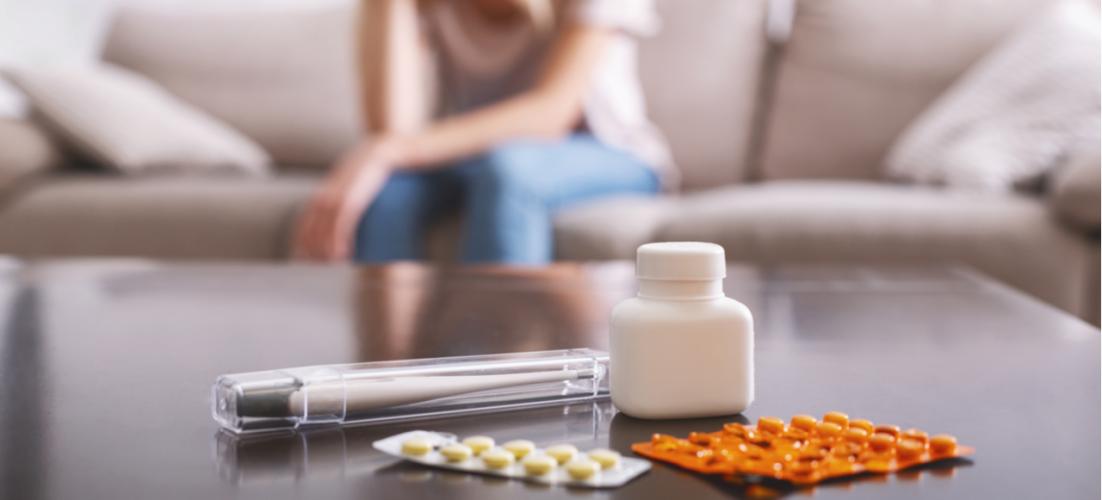Patients suffered during UTI trial

Hundreds of patients have needed medical treatment for complications after taking part in a Queensland Government trial allowing pharmacists to diagnose and sell prescriptions for urinary tract infections (UTIs), the only publicly available evaluation of the pilot’s health outcomes has found.
The UTI pharmacy prescribing trial began in 2020 and was extended this year after the Government hailed it as a ‘success’ based on the number of women who had accessed the service but without any details about their health outcomes.
The Government is now planning to expand the trial next month to allow pharmacists in North Queensland to diagnose and sell prescription medications for 23 serious conditions without any medical oversight, in breach of Commonwealth legislation.
An AMA Queensland survey of more than 1,300 doctors across the state has revealed at least 240 patients treated by pharmacists suffered complications from misdiagnosis – most commonly sexually transmitted infections (STIs), but also cancerous conditions and pregnancies. Patients were also sold antibiotics that were not only inappropriate but dangerous.
One in five GPs and one in eight of all doctors who responded – including emergency doctors and oncologists - reported seeing at least one complication.
“In the absence of credible information about outcomes from the UTI pilot, we asked doctors to share their patients’ stories. The results are alarming,” AMA Queensland President Professor Chris Perry said.
“The UTI pilot has failed, and the North Queensland pilot should not go ahead. The Queensland Government has been careless with patient health in this UTI pilot. Where is the thorough analysis, scientific evaluation, genuine stakeholder engagement or feedback?
“Women did not receive the care they needed and an alarming number became more ill due to their participation in the trial. Bizarrely, three doctors reported seeing men with complications, despite the pilot being specifically limited to ‘uncomplicated cystitis in non-pregnant women’.
“At least six pregnant women were sold antibiotics that are unsafe in the first trimester. One of them had a potentially life-threatening ectopic pregnancy.
“At least nine patients ended up in hospital with sepsis or kidney and bladder infections due to ineffective or delayed treatment.
“Doctors had no way to report adverse outcomes to those overseeing the pilot. The only option was to report the individual pharmacist to the Office of the Health Ombudsman – in effect, blaming the pharmacist for the scheme’s failings without being able to alert the scheme’s designers to its flaws and risks to patient safety.”
AMA Queensland has written to the Queensland University of Technology (QUT), which was engaged to manage the UTI pilot’s implementation and evaluation. QUT has confirmed that a research study was undertaken and report provided to Queensland Health, but this has not been made available to doctors or to the public.
“From the limited information available about this trial, we understand that the pharmacist who provided the pilot service also conducts the follow-up call to the patient, and then reports the feedback back to the trial coordinators,” Prof Perry said.
“This does not seem like the most effective way to conduct a clinical trial. A patient who has just discovered that they have a misdiagnosed STI may not want to tell their pharmacist. A patient who is dissatisfied with the treatment they’ve received may be reticent to explain that dissatisfaction to the person who provided it.
“We have asked QUT to consider whether a trial that provides no clear mechanism for patients or doctors to report adverse events, and where the data for the evaluation of a service comes from the pharmacist who delivered that service, meets their usual standards for ethical approvals.
“Doctors are united in their opposition to the expansion of the UTI pilot to 23 conditions through the North Queensland pharmacy trial with 96 per cent saying it presents too great a risk to patient safety.
“Every pharmacy-trained doctor who responded to our survey said the proposed 120 hours of online learning for pharmacists taking part in the North Queensland trial is not enough.
“Doctors and pharmacists work as a team. Pharmacists are experts in medications and provide a critical safeguard over prescriptions, picking up potential errors or unintended adverse impacts.
“That is why prescribing and dispensing are separated by legislation – to ensure the checks and balances are there to protect patients and avoid any conflicts of interest.
“We call on the Queensland Government to release QUT’s evaluation of the UTI pilot and the Government’s plans for implementing the North Queensland pilot – including its schedule for changing laws to allow pharmacists to prescribe Schedule 4 medications – to allow appropriate scrutiny from the public and healthcare professionals before proceeding with the dangerous North Queensland trial.”
Background
- 1,307 Queensland doctors participated in the online survey, which was conducted from 18-28 March 2022.
- Of the respondents, 52 per cent were GPs, 36 per cent were other specialists, and 12 per cent were doctors in training.
- More than one-third had an undergraduate health or science qualification before entering medicine, including 39 who were pharmacists.
- At least six pregnancies were misdiagnosed as UTIs, with patients prescribed antibiotics that are unsafe in the first 12 weeks of pregnancy. An ectopic pregnancy was misdiagnosed as a UTI.
- Cancerous conditions were missed in nine cases, and at least nine other patients ended up in hospital after ineffective or delayed treatment resulted in urosepsis or pyelonephritis (kidney infections).
- Every medical group – AMA Queensland, the RACGP, ACRRM, NACCHO and the North Queensland Primary Health Network - initially involved with the steering group overseeing the North Queensland pharmacy trial has withdrawn since the full scope of this trial was revealed.
- The Professional Services Review – the Commonwealth Government’s independent agency that oversees patient safety – has advised the Commonwealth Department of Health that the North Queensland pharmacy trial is inconsistent with federal law.